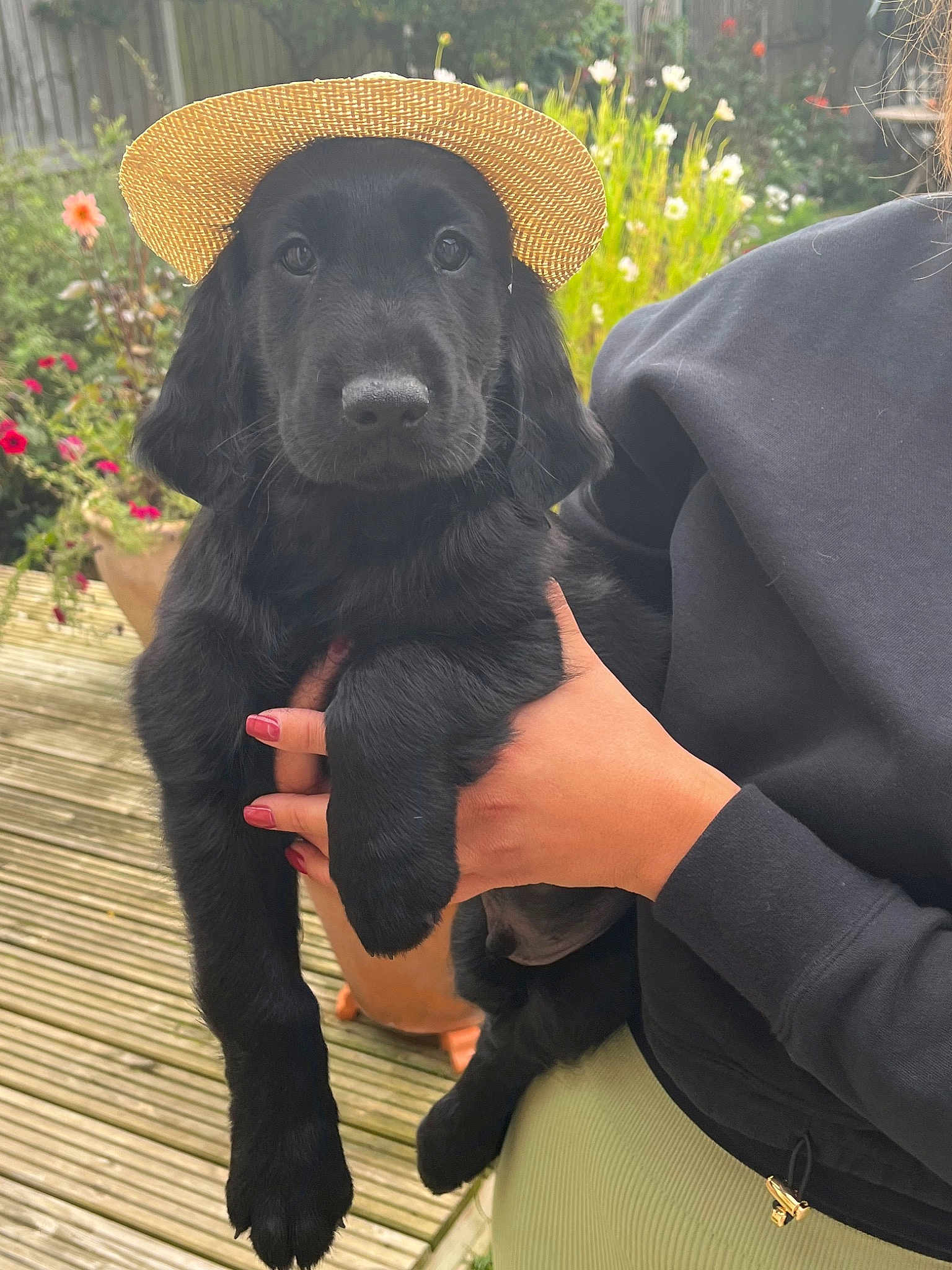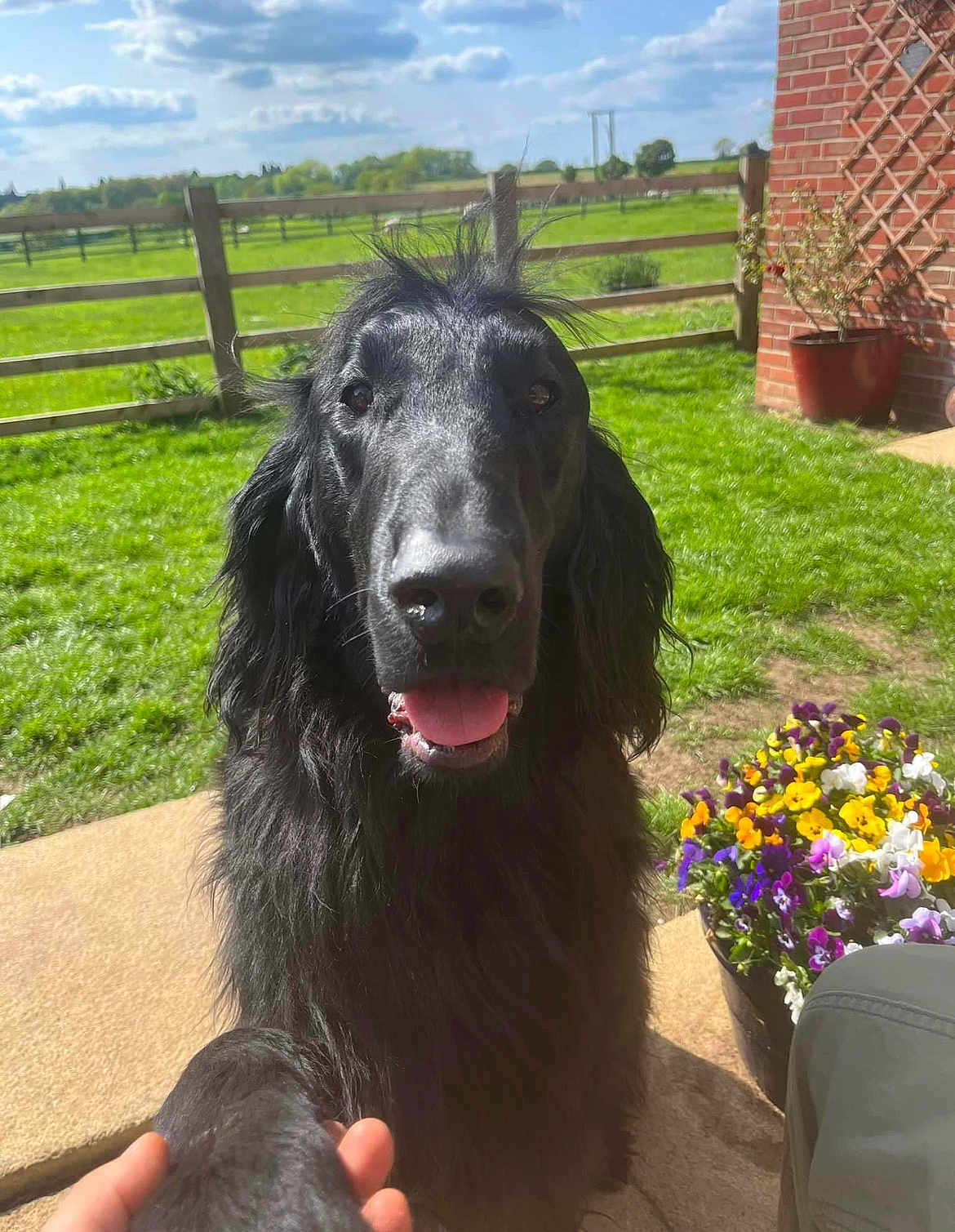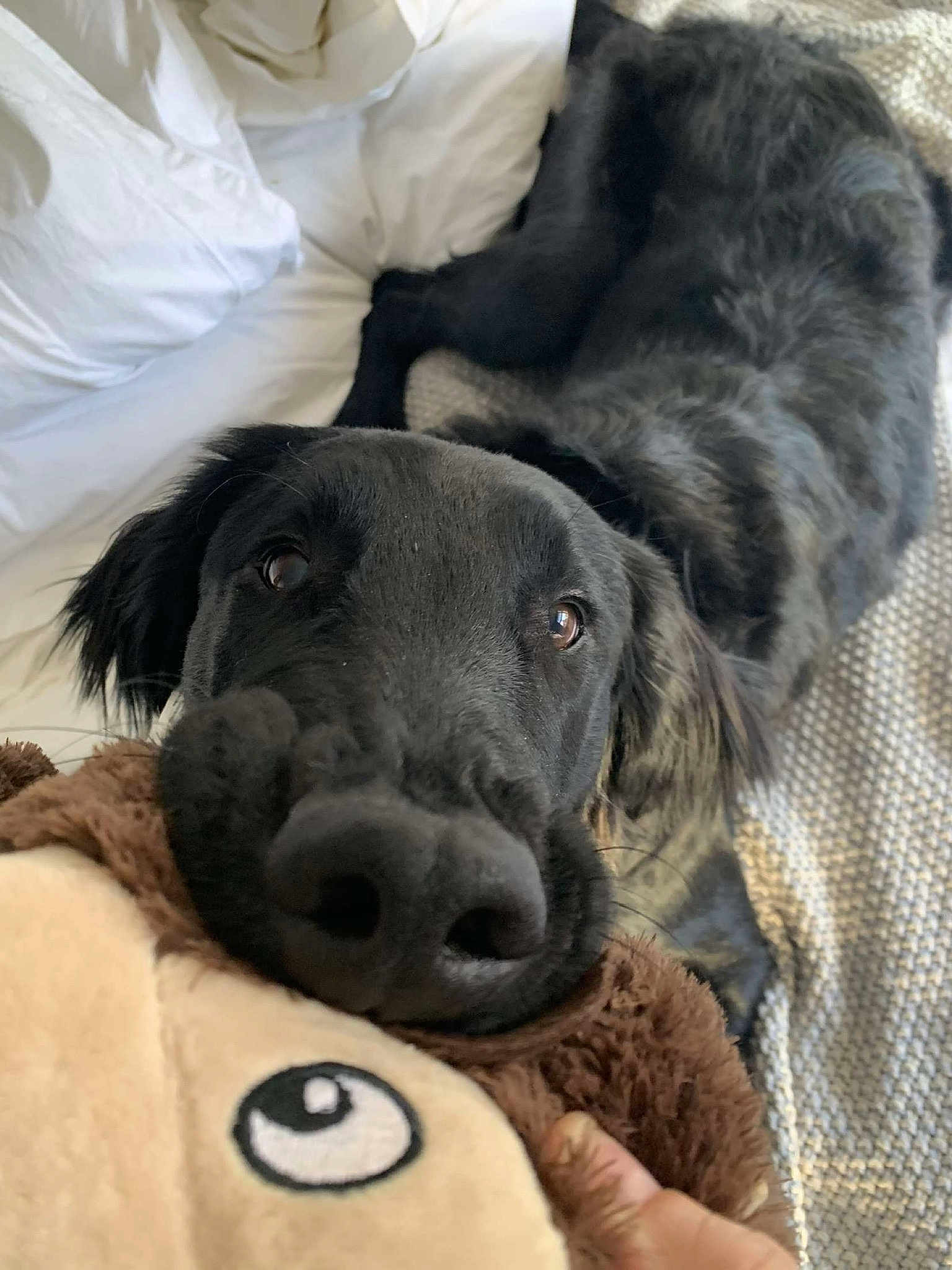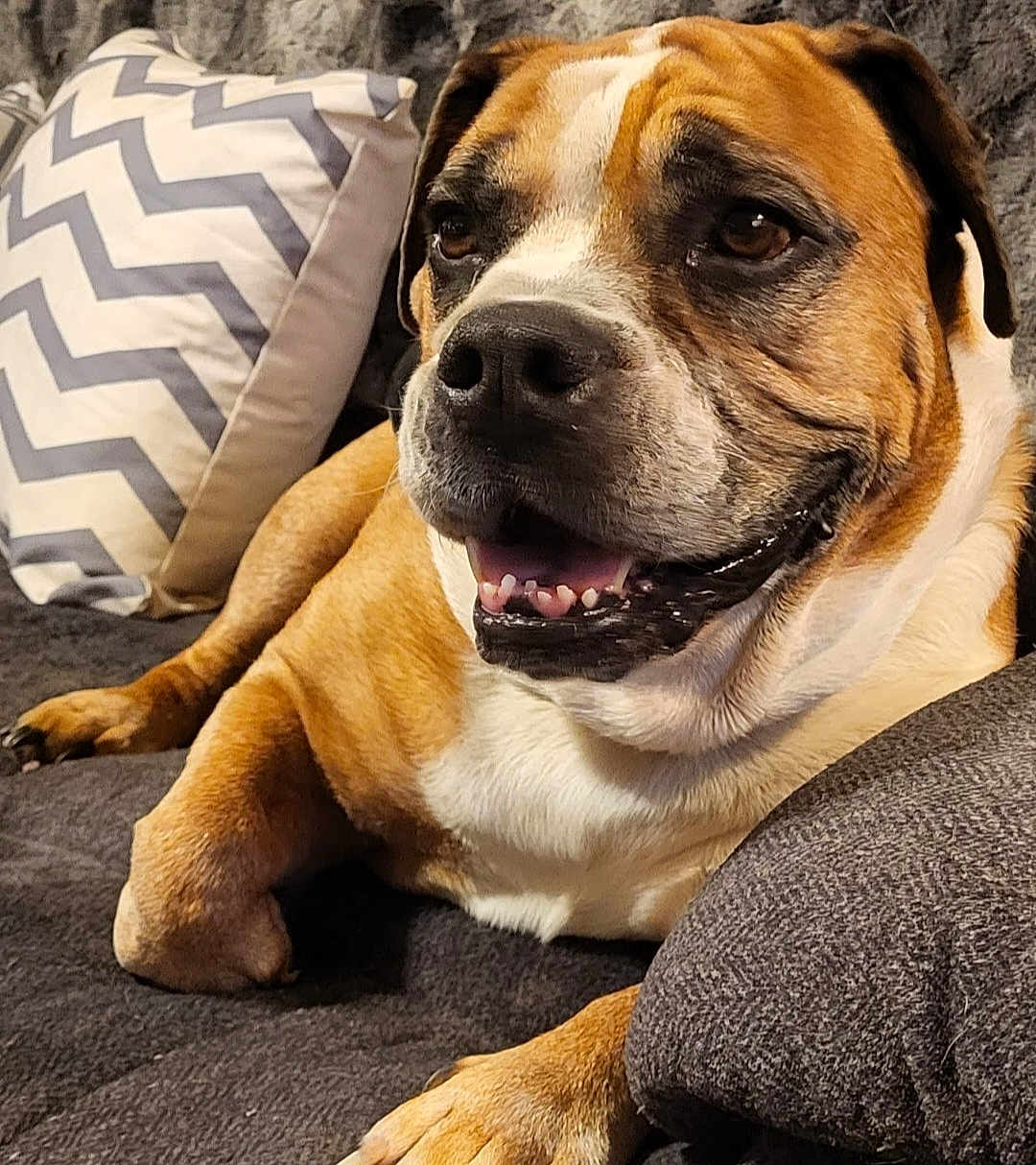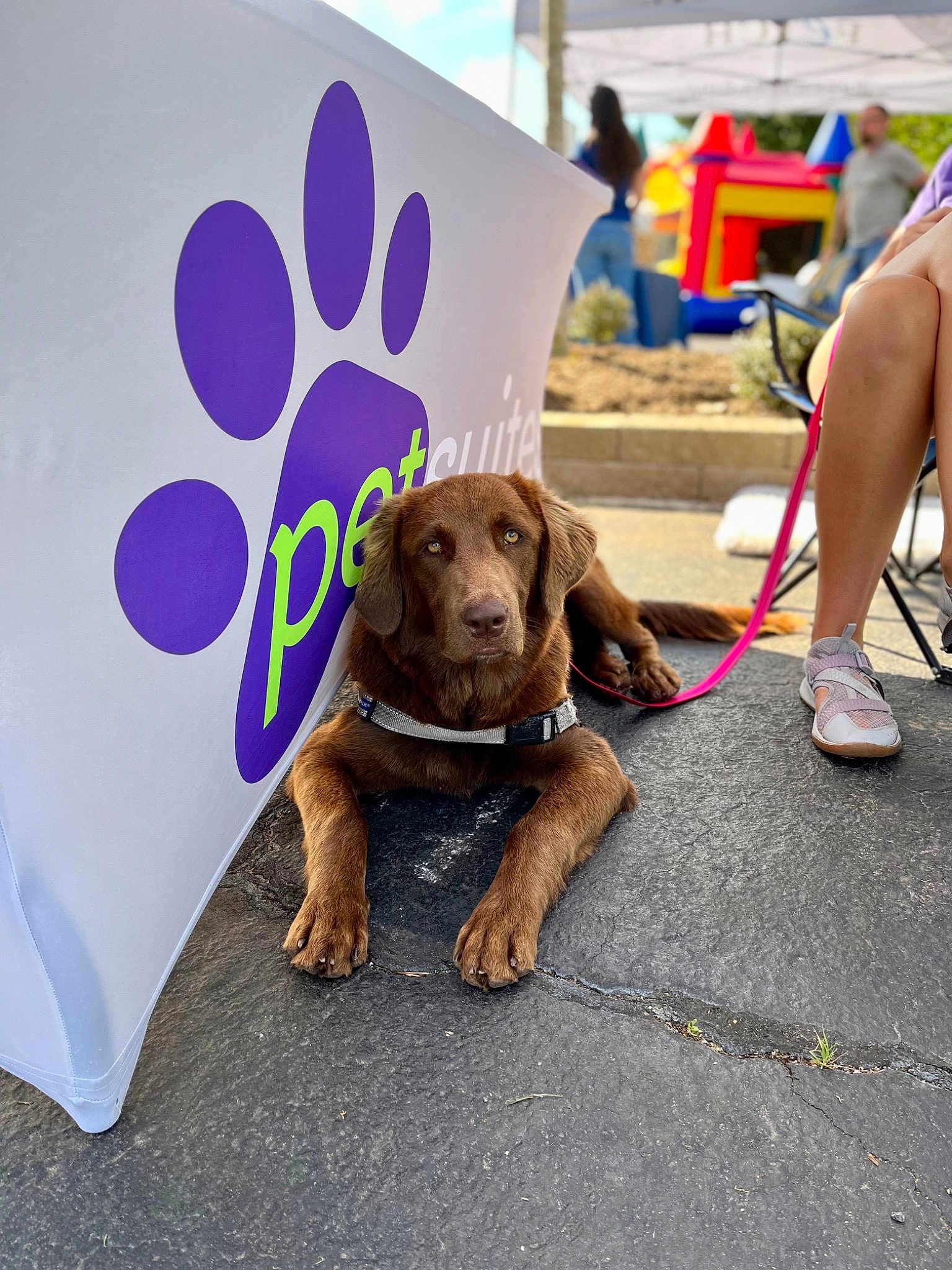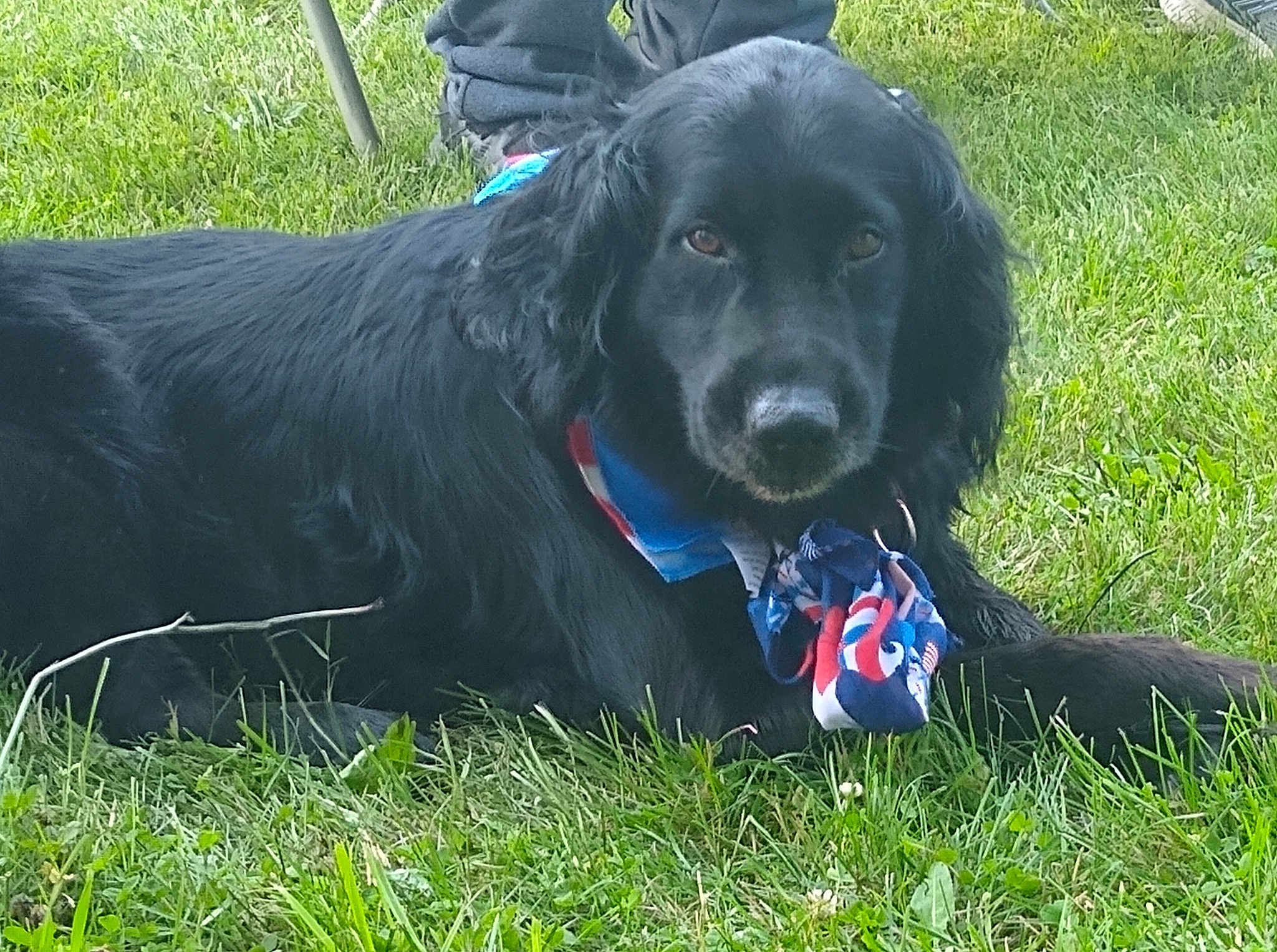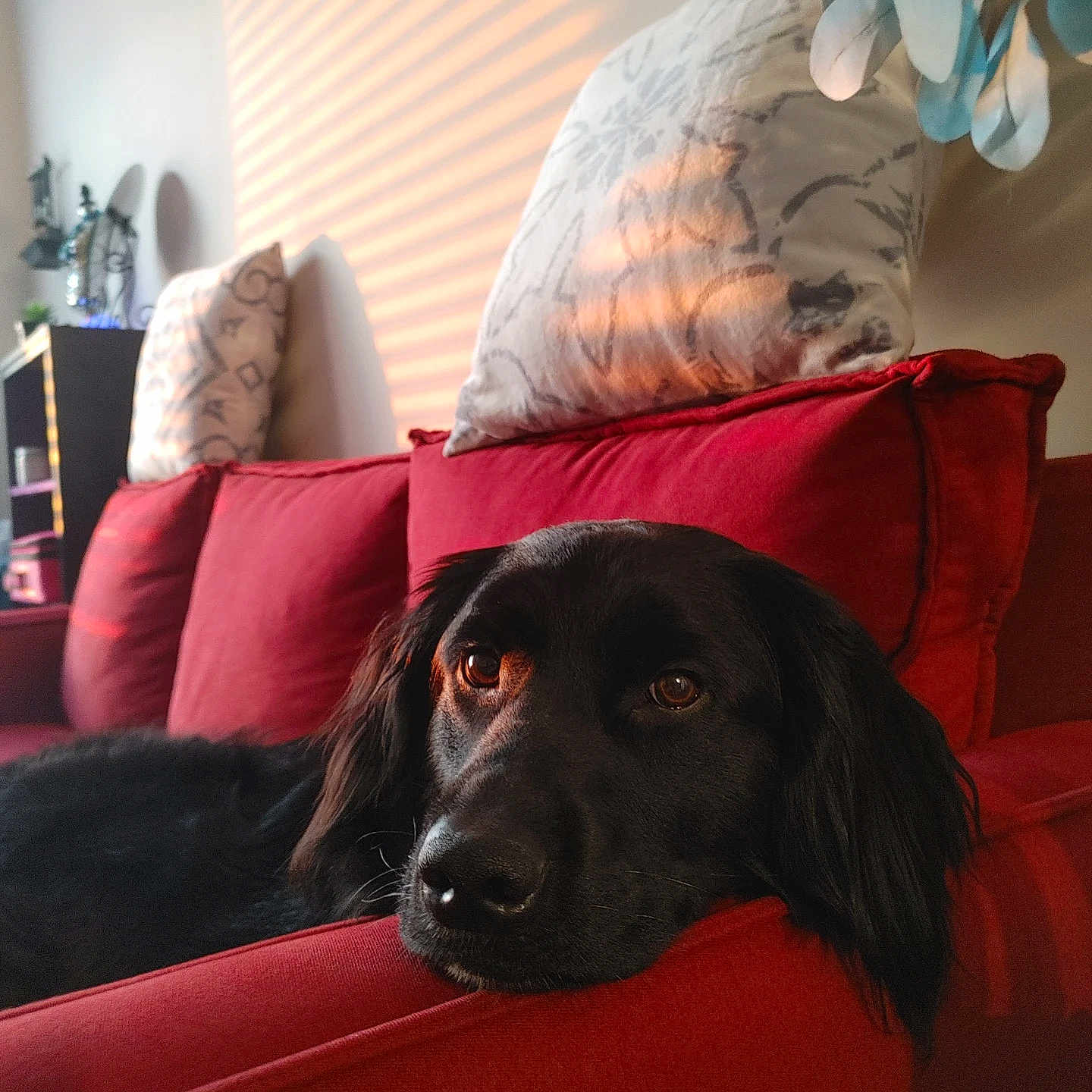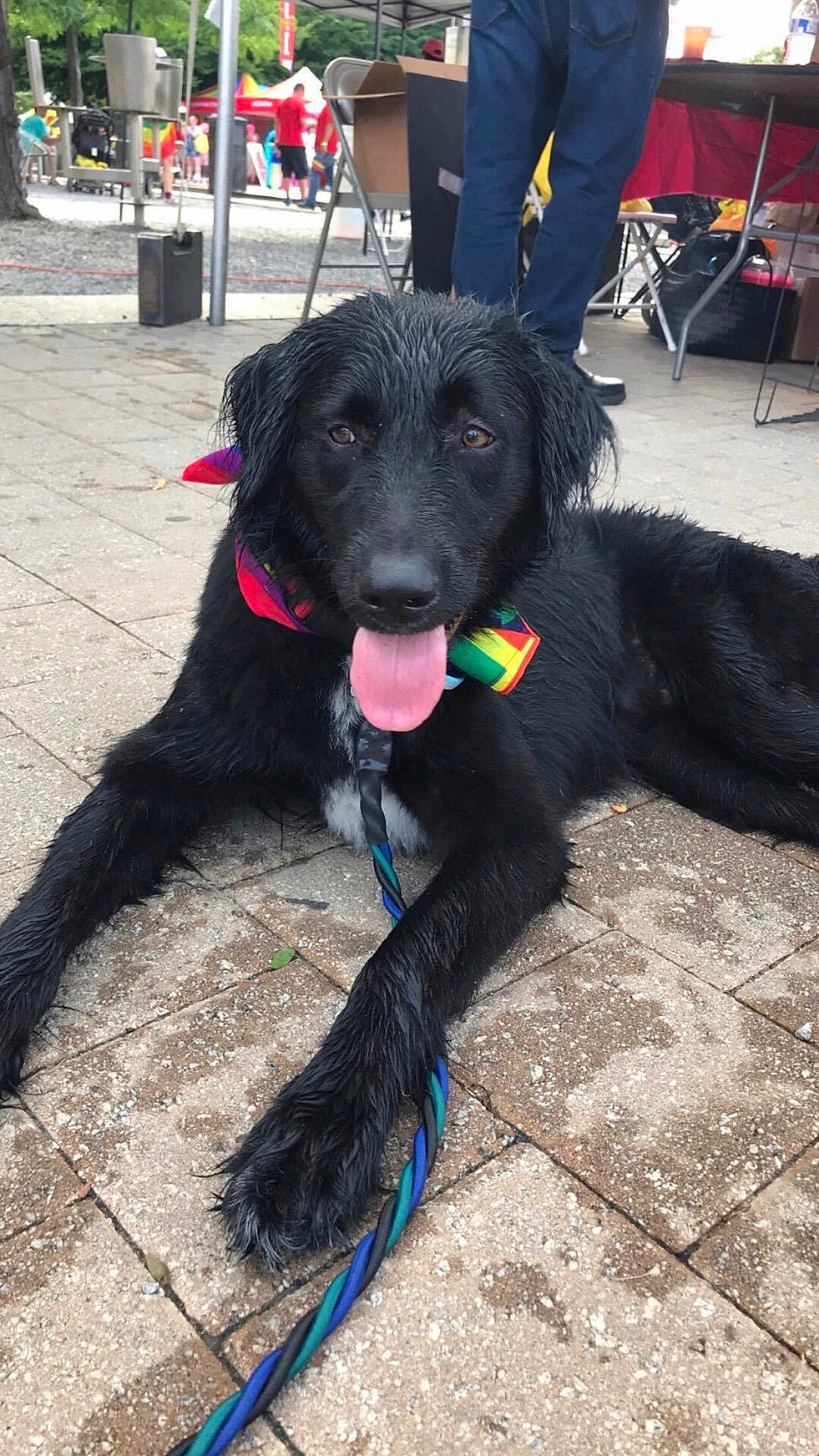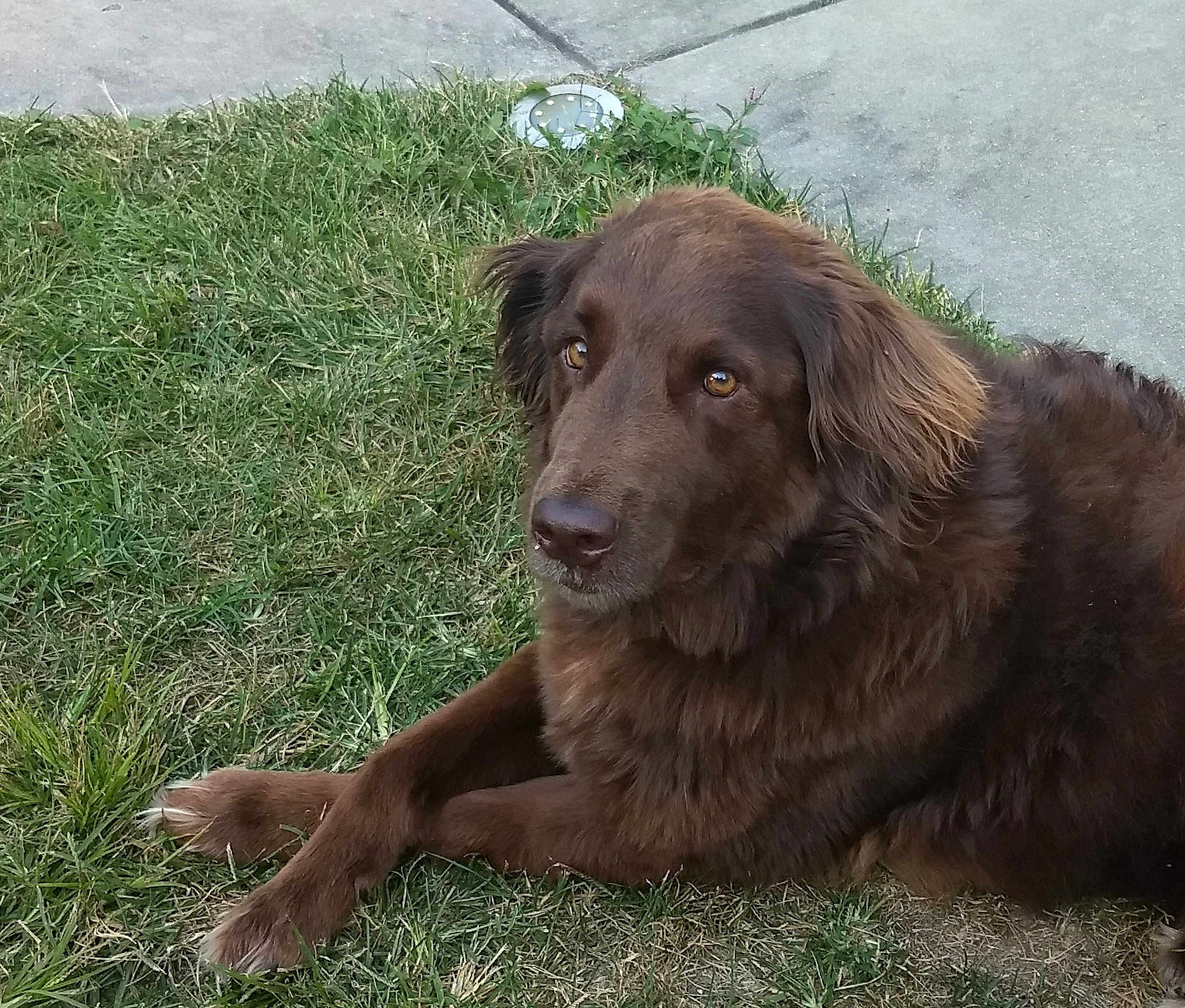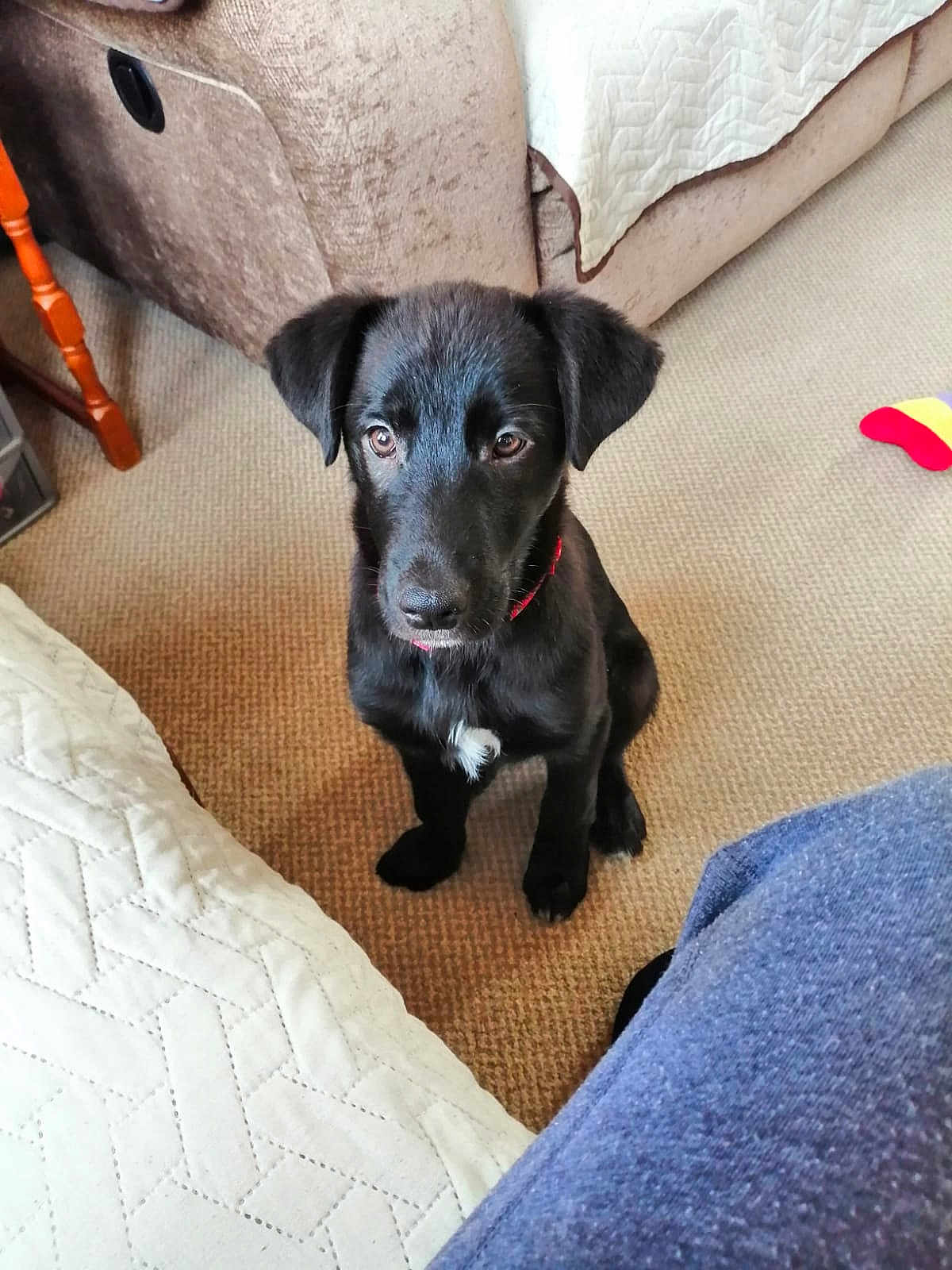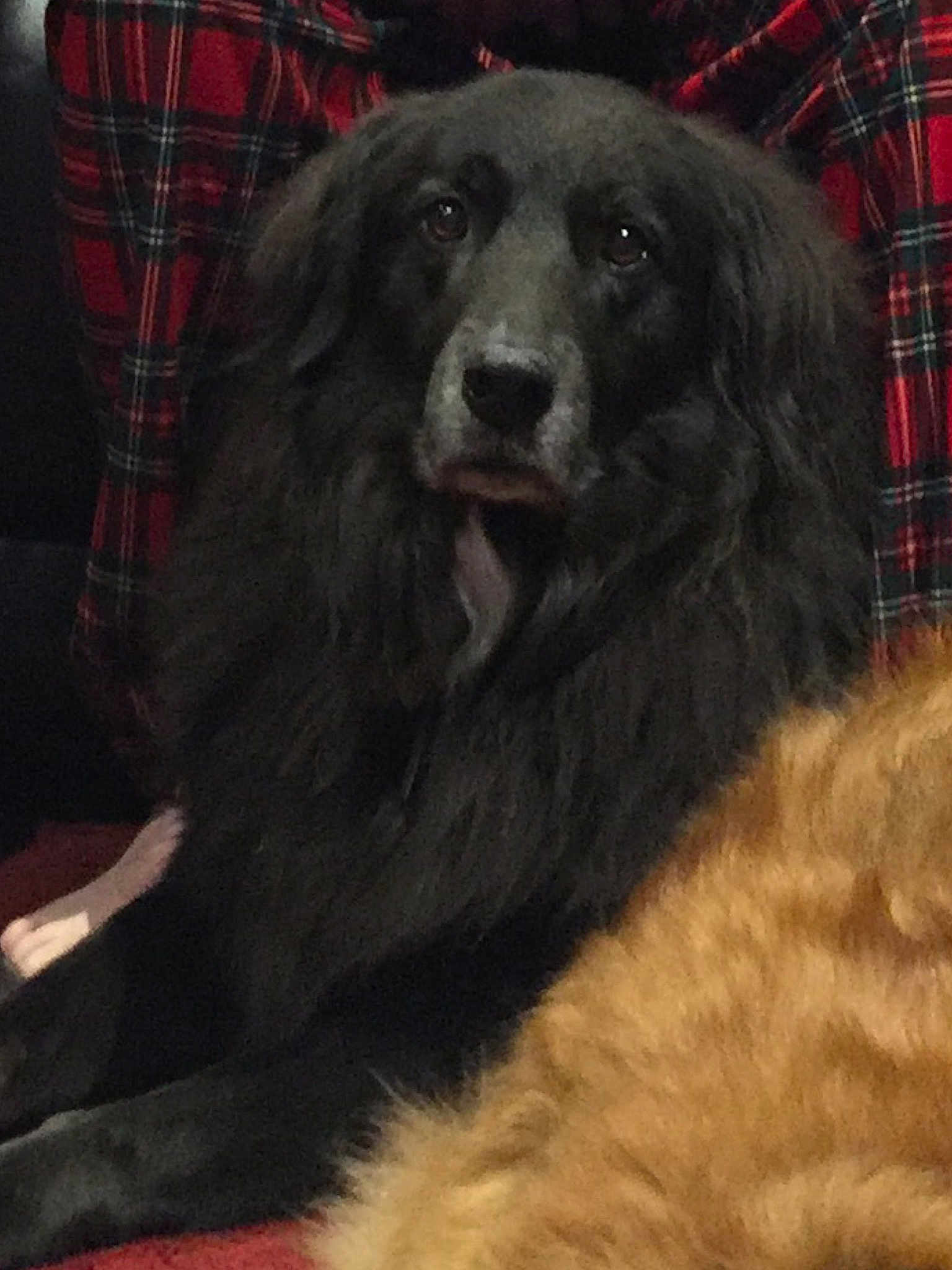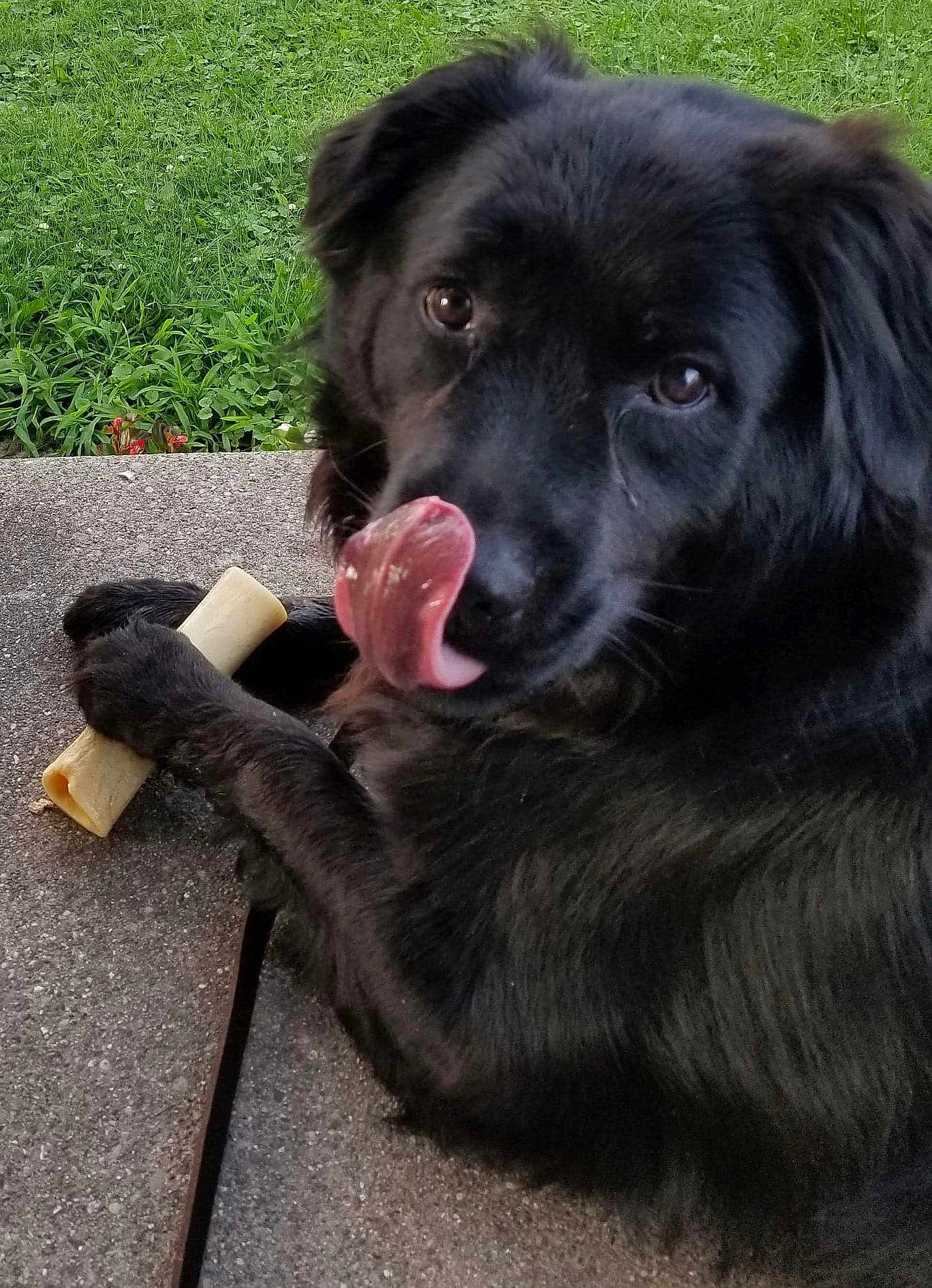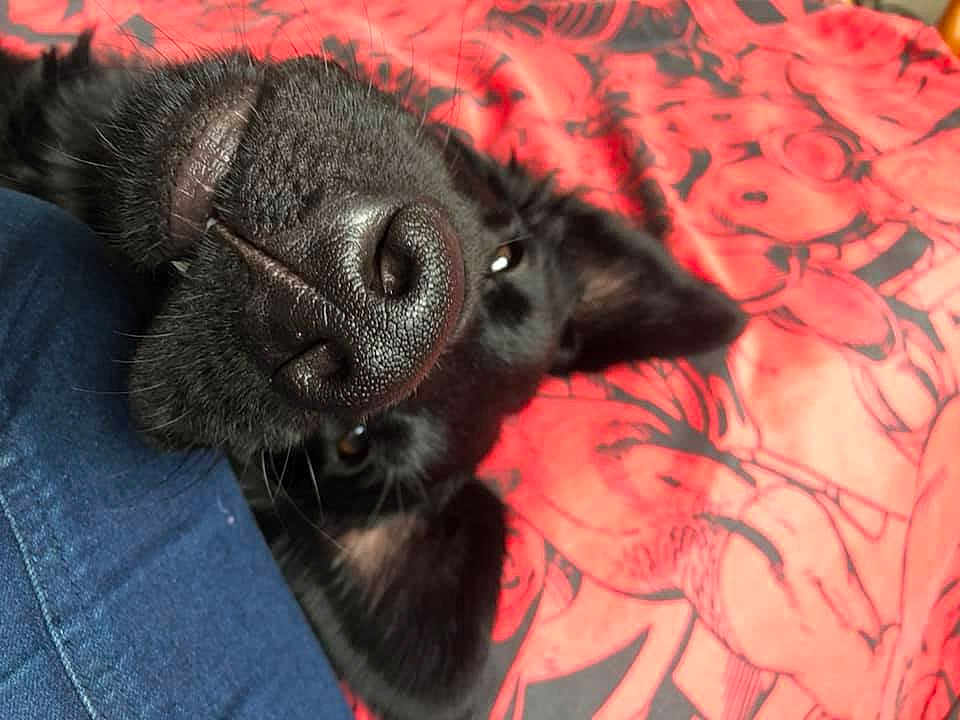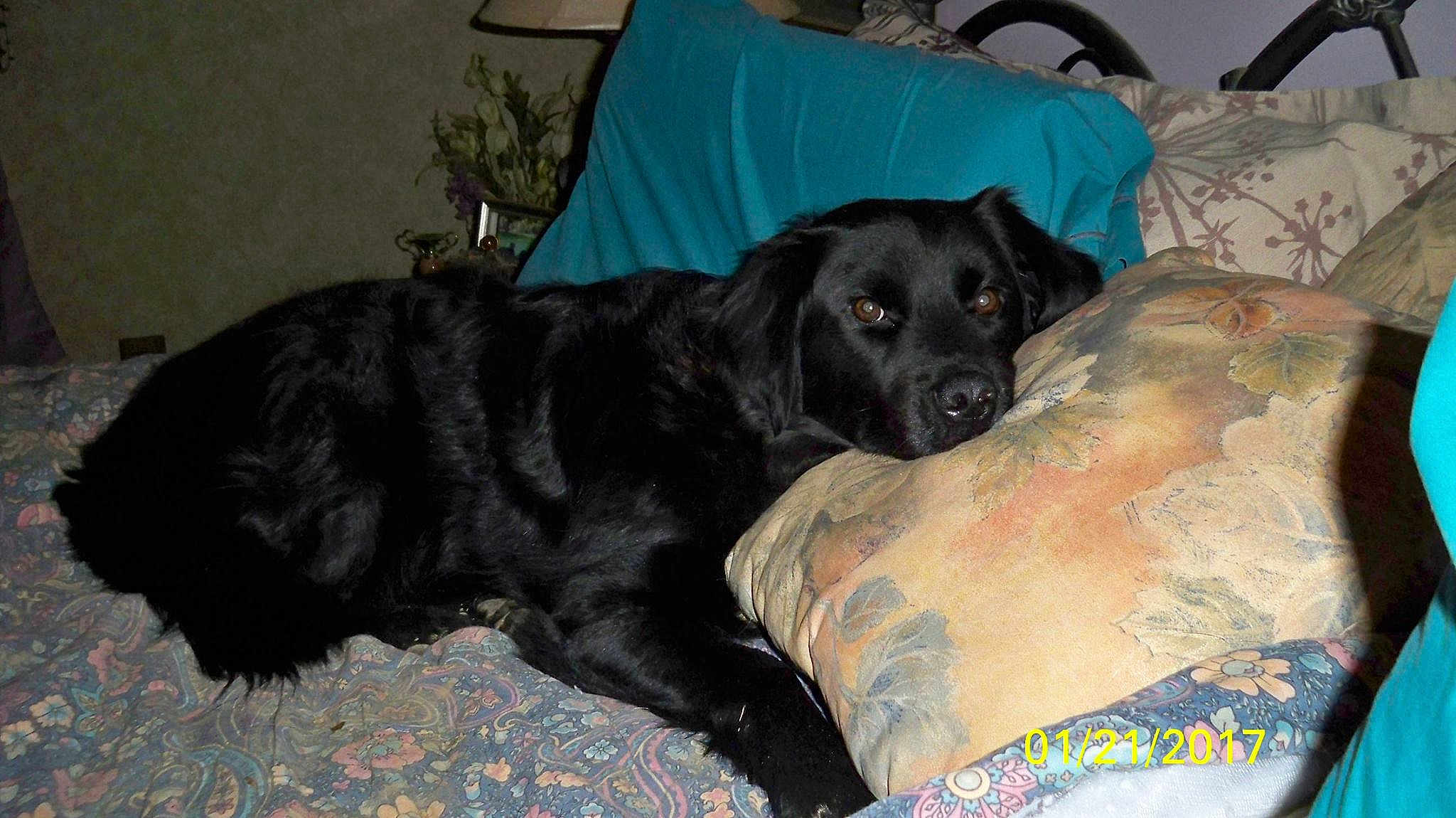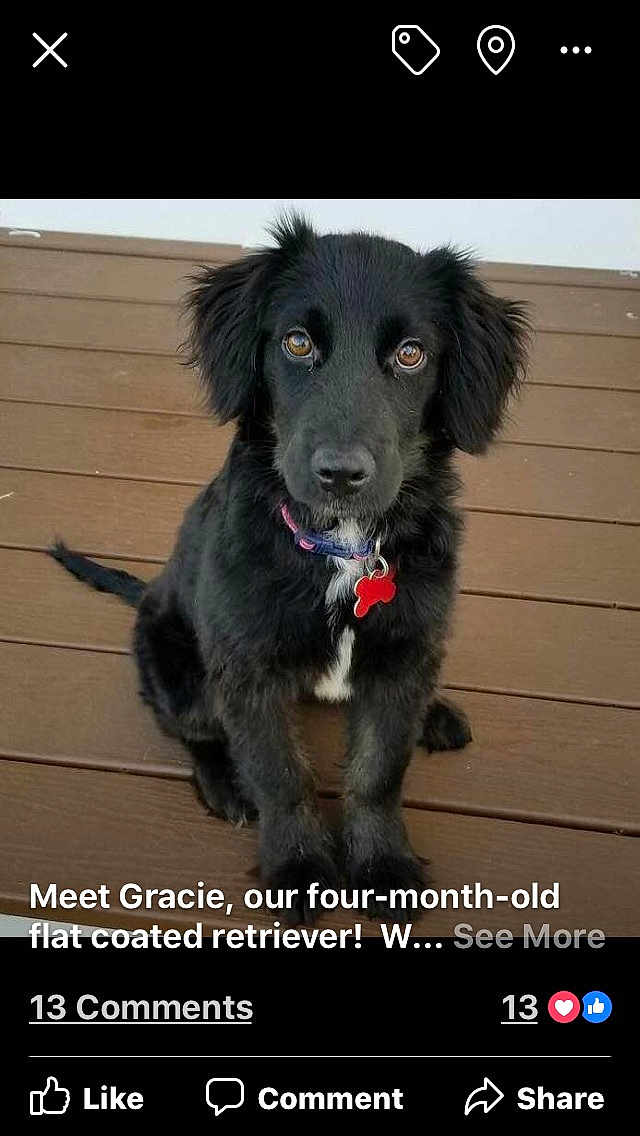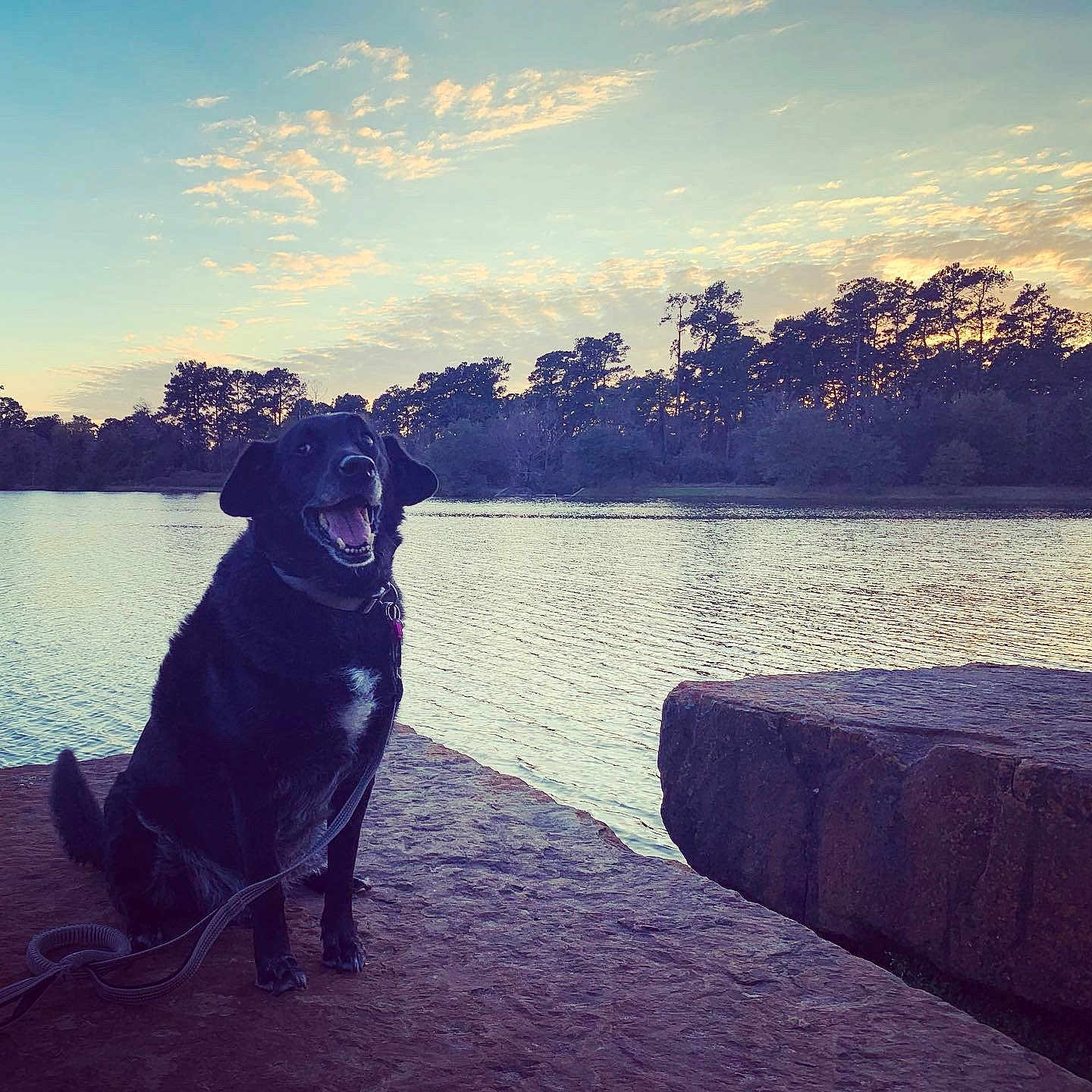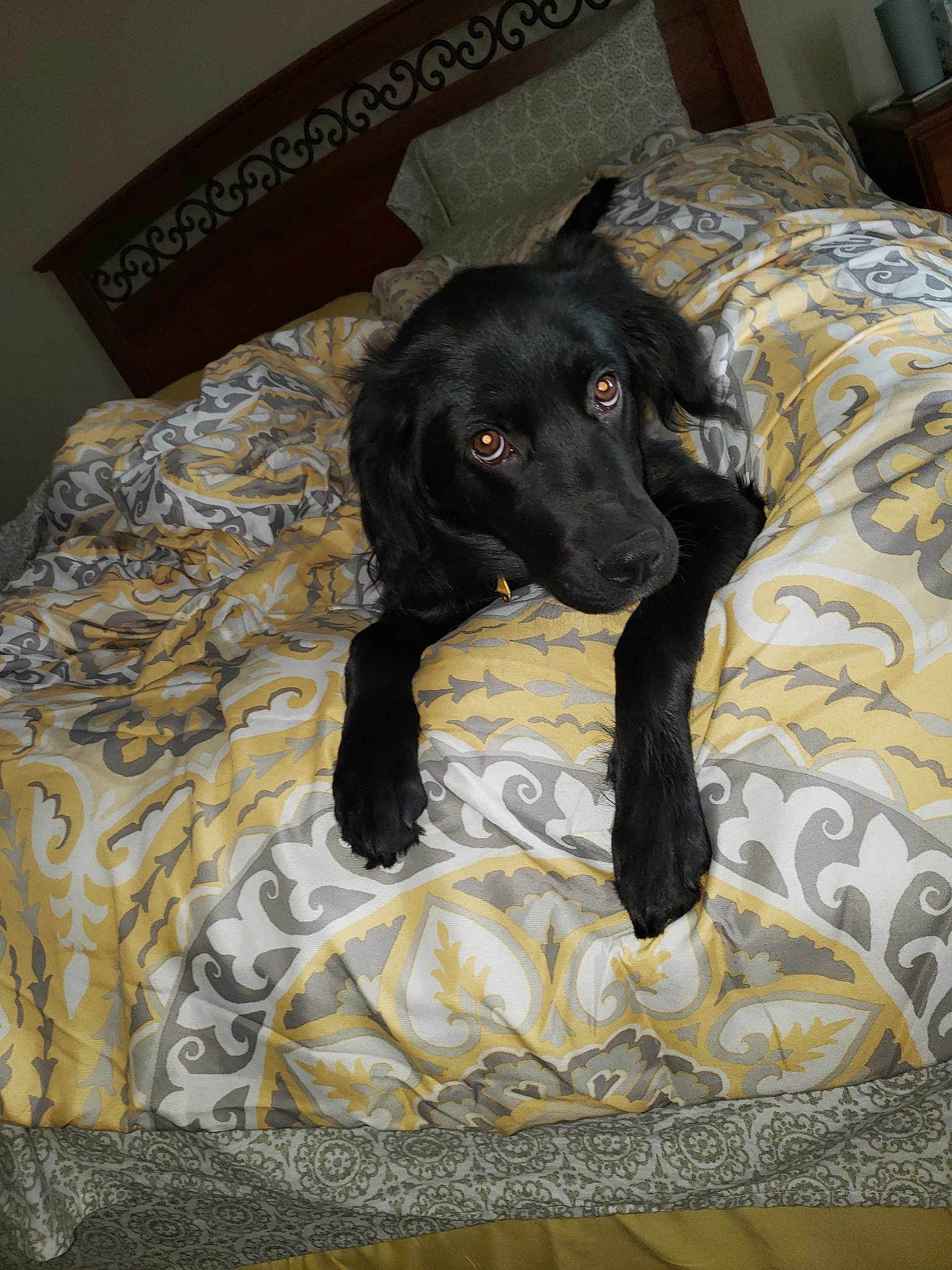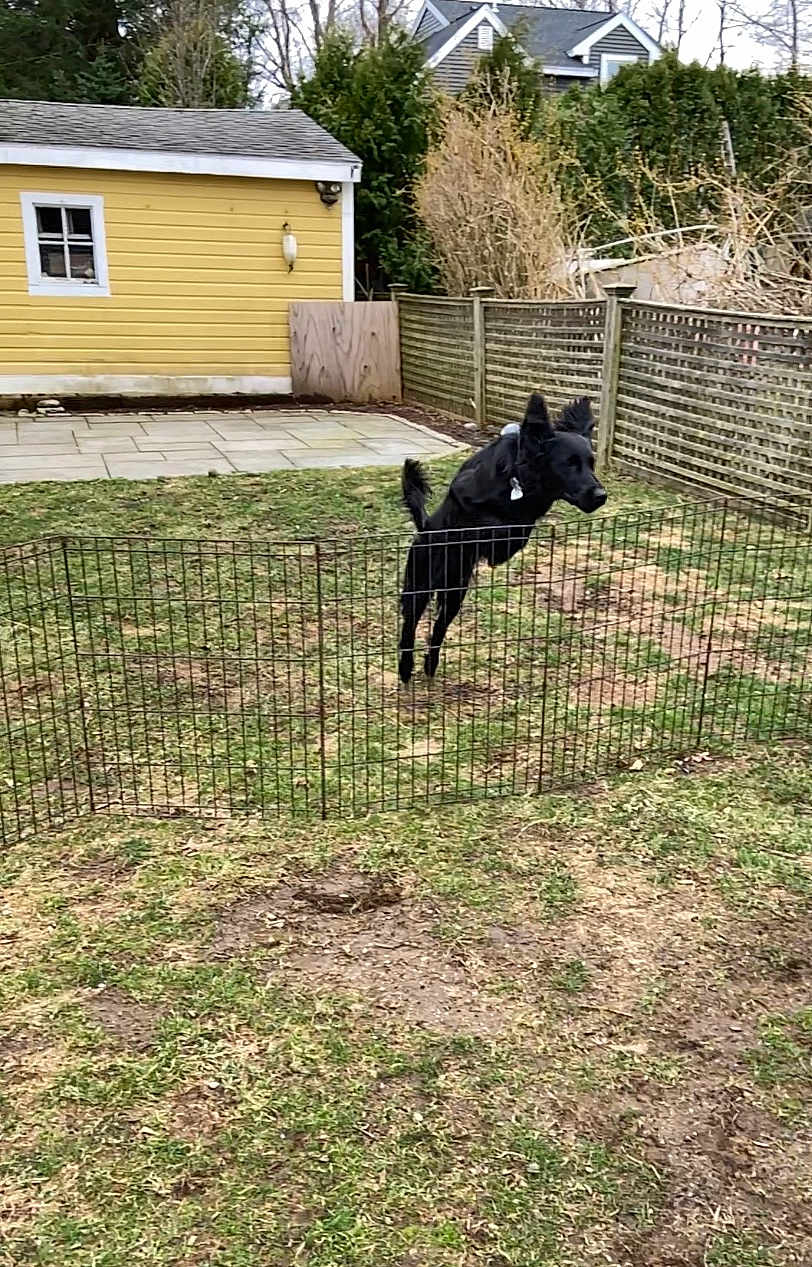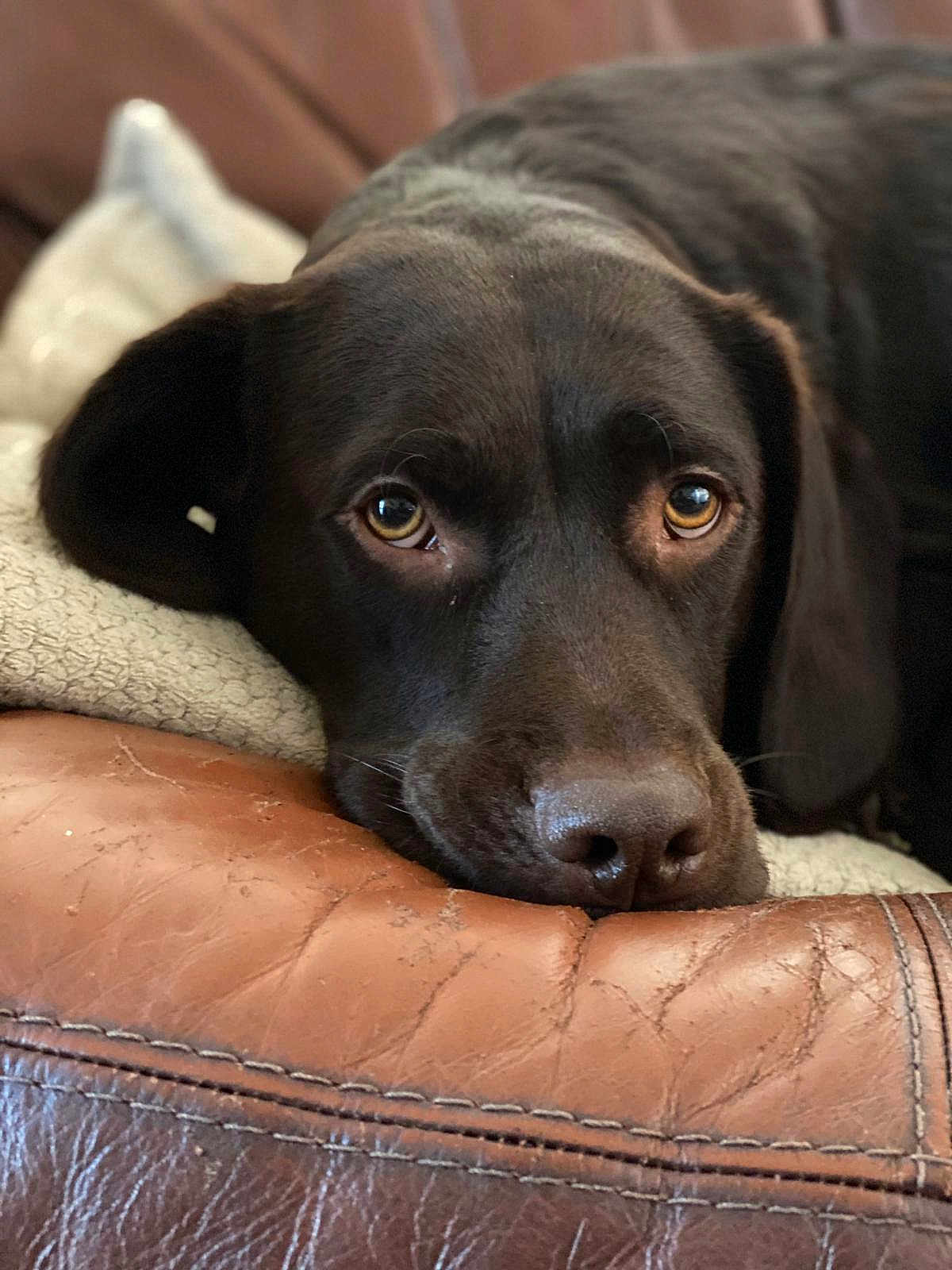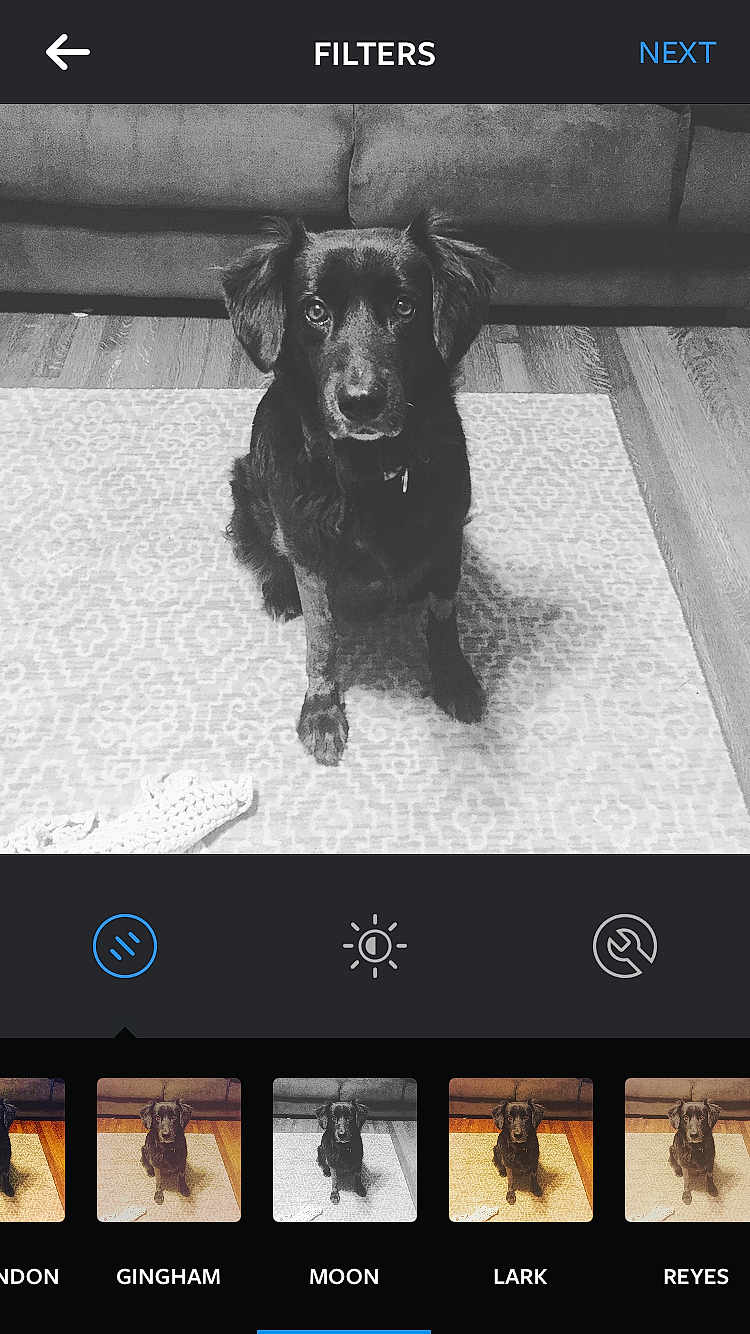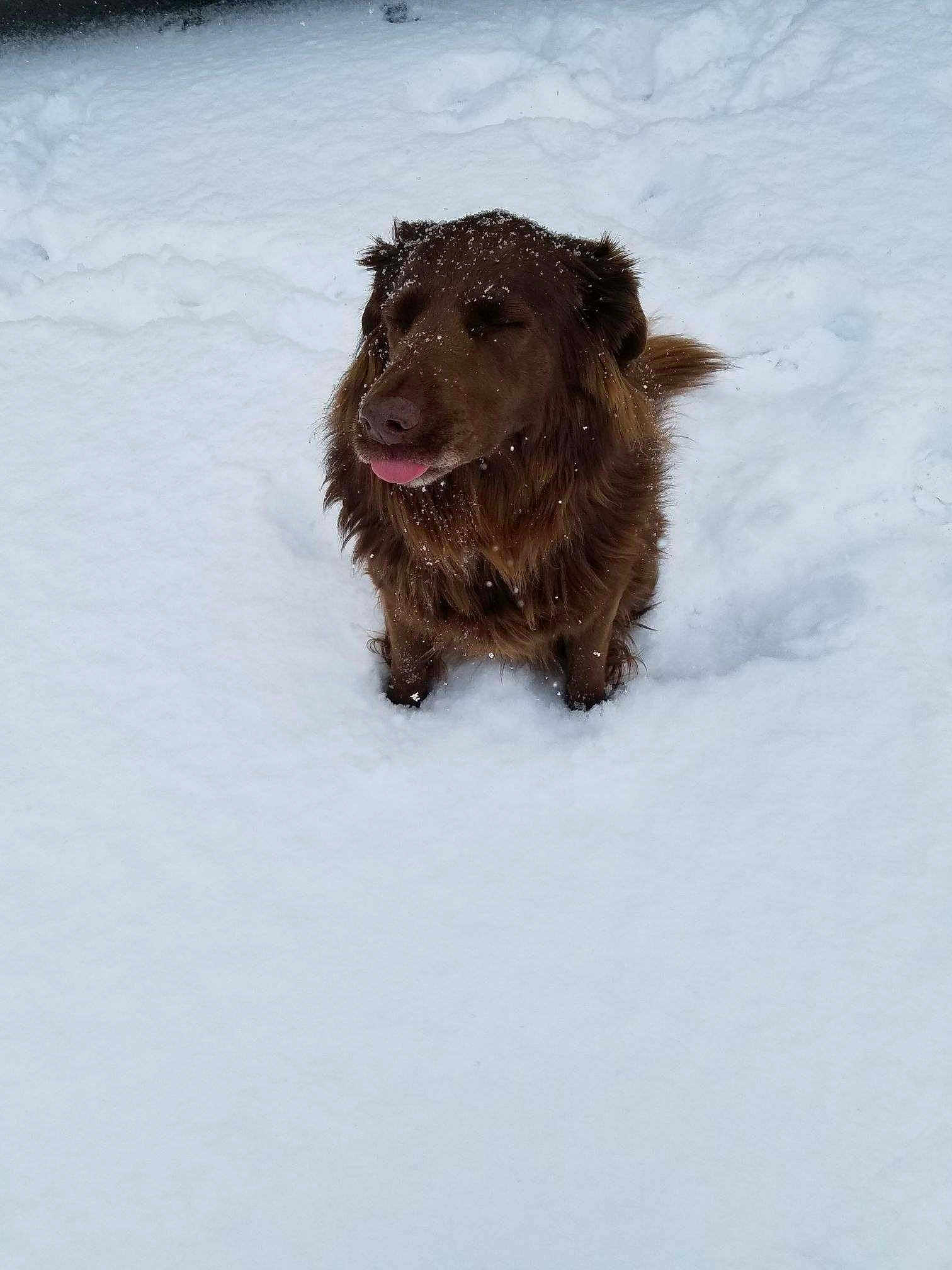
"The Flat Coated Retriever, often referred to as the 'Peter Pan' of the retriever family, epitomizes perpetual youth and exuberance, making it an unforgettable companion."
Personality and Behavior of the Flat Coated Retriever
The Flat Coated Retriever is known for its outgoing and playful nature. This breed is often described as having a perpetual puppy-like demeanor, which contributes to its charm and popularity among dog lovers. They are exceptionally friendly, joyful, and make for excellent family pets due to their affectionate behavior and endearing enthusiasm for life.
This breed tends to be great with children and other pets, showcasing a high level of sociability. They thrive on human interaction and prefer to be involved in family activities. Their playful nature and high energy level make them perfect playmates for children, although supervision is advised to ensure play remains safe and enjoyable for everyone involved.
Flat Coated Retrievers are also known for their intelligence and eagerness to please, which makes them highly trainable. They respond best to positive reinforcement training methods and enjoy mental stimulation through games and challenges. Despite their intelligence, their fun-loving nature sometimes means they can be a bit obstinate, requiring patience and consistency in training.
"One fascinating aspect of the Flat Coated Retriever is their ‘forever young’ spirit; they retain their playful and puppy-like nature well into their senior years, bringing joy and laughter to households year after year."
Meanings, History and Origins of the name Flat Coated Retriever
The name "Flat Coated Retriever" is quite literal and descriptive, pointing directly to the dog's physical characteristics and primary historical function. The term "Flat Coated" refers to the breed’s sleek, straight fur that lies close to the body, setting it apart from other retriever breeds that may have curly or wavy coats. The word "Retriever" aligns with the breed’s original purpose in retrieving game for hunters.
Flat Coated Retrievers originated in the mid-19th century in the United Kingdom. They were developed as a versatile hunting dog, capable of retrieving both on land and in water. The breed was a result of crossbreeding several dogs, including the now-extinct St. John’s Water Dog, Collie, and possibly spaniels and setters, to create a dog with an exceptional retrieving ability and a friendly temperament.
This breed was particularly valued by gamekeepers and sportsmen for their excellent nose, endurance, and willingness to work. Flat Coated Retrievers quickly gained popularity in England and North America as hunting companions, and they were known for their efficiency in retrieving both upland game and waterfowl.
Popularity of the Flat Coated Retriever
The Flat Coated Retriever enjoys a moderate level of popularity, particularly among enthusiasts who appreciate their friendly and energetic disposition. While not as universally recognized as the Labrador or Golden Retriever, the Flat Coated Retriever has a dedicated following.
In English-speaking countries, the breed is celebrated for its combination of working ability and companionable nature. For instance, in the United States and the UK, Flat Coated Retrievers are often seen in dog shows and agility competitions, highlighting their physical prowess and trainability.
Globally, their popularity varies but tends to be stronger in regions where hunting and retrieving remain popular pastimes. However, even in urban settings, the breed's cheerful and adaptable nature wins them fans. Organizations dedicated to the breed help maintain its legacy and ensure it remains well-represented in the canine community.
Health and Care of the Flat Coated Retriever
Flat Coated Retrievers are generally healthy dogs, but like all breeds, they are prone to certain health issues. Common concerns for this breed include hip dysplasia, elbow dysplasia, and certain types of cancers such as hemangiosarcoma and osteosarcoma. Regular veterinary check-ups and maintaining a healthy diet and exercise routine are crucial for early detection and prevention of these ailments.
Diet for a Flat Coated Retriever should be well-balanced and age-appropriate, rich in high-quality proteins, fats, carbohydrates, vitamins, and minerals. Due to their active nature, they require sufficient caloric intake to maintain their energy levels. Owners should be cautious about overfeeding, as this breed can be prone to obesity if not monitored.
In terms of care, maintaining the Flat Coated Retriever’s coat involves regular brushing to keep it free of tangles and mats. Their sleek coat does not require as frequent grooming as some other breeds, but regular maintenance helps to manage shedding and keeps the coat looking its best. Additionally, regular dental care, ear cleaning, and nail trimming should be part of their grooming routine.
Training and Education of the Flat Coated Retriever
Training a Flat Coated Retriever can be a rewarding experience due to their intelligence and eagerness to please. However, their playful and sometimes stubborn streak can present challenges. Consistency, patience, and positive reinforcement are key strategies for successfully training this breed.
Obedience training should start early, focusing on basic commands such as sit, stay, and come. Incorporating plenty of play and variety into training sessions can help keep the dog engaged and motivated. The Flat Coated Retriever responds well to praise, treats, and interactive play as rewards for good behavior.
Socialization is another important aspect of training. Exposing your Flat Coated Retriever to a variety of people, places, and other animals from an early age helps to develop a well-rounded and confident dog. Puppy training classes can be beneficial in providing structured socialization opportunities.
Advanced training and activities such as agility, tracking, and obedience competitions can also be excellent outlets for the breed’s physical and mental energy. These activities not only provide physical exercise but also stimulate the dog’s mind, fostering a stronger bond between the dog and owner.
Choosing the right dog involves considering your lifestyle, activity level, and the dog’s temperament. For active families or individuals who enjoy outdoor activities, the Flat Coated Retriever could be an ideal match. Their playful nature, intelligence, and affectionate demeanor make them wonderful companions for those who can meet their exercise and social needs.
In conclusion, selecting the right dog breed is a delightful journey filled with considerations of compatibility and lifestyle. At KingPet, we see many Flat Coated Retrievers shine bright in our contests, showcasing their unique traits and charm. The Flat Coated Retriever, with its joyful spirit and endearing personality, can make a delightful addition to any family, promising years of companionship and joy.















